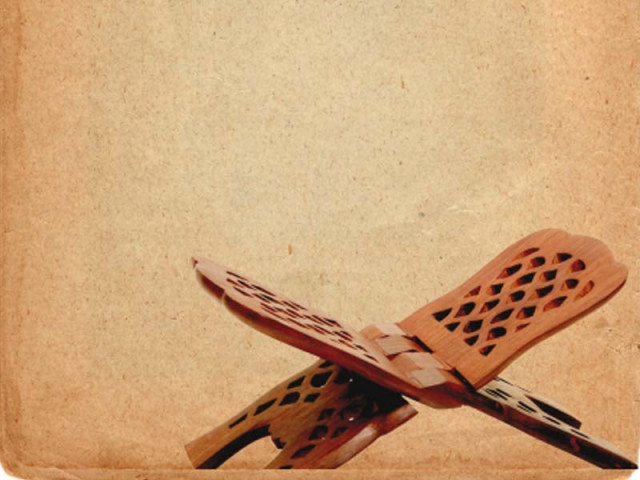Fading job prospects for madrassa students
Headhunters say in today’s job market, madrassa graduates are at a disadvantage.

Fading job prospects for madrassa students
“When I graduate, I will look for a placement at a university abroad and further my religious education,” says 20-year-old Abid Farooq. Originally from Mansehra, Farooq attended school in Karachi and became a hafiz, and then enrolled in a madrassa in Islamabad to study as an aalim.
Farooq says his friends have similar plans. Many madrassa have started offering Arabic classes to give graduates like Farooq more options. They might find work as businessmen or traders, besides Islamic scholars, in Middle Eastern countries.
But the question of how many opportunities are available to those with a religious education is hard to answer. Pakistan is struggling to deal with unemployment, with the jobless rate estimated to be anywhere between 5.6 per cent and 34 per cent.
The managements of madrassa believe it is unfair to say that they are fuelling unemployment or their graduates are unemployable, given that university graduates can’t find jobs either.
Headhunters do not believe the graduates of madrassa or schools, which focus on an extensive religious education (such as the Iqra Islamic School chain), can be competitive in the job market.
“Graduates from madrassa are at a significant disadvantage when entering the job market compared to their peers from conventional schools,” said Monis Rehman, the CEO of Naseeb Networks, which also runs the jobs website Rozee.pk. “There is a prevalent perception that madrassa graduates lack fundamental mathematics, computer and comprehension skills.”
Naveed Khan, the head of the recruitment agency PeopleTM’s Executive Search Department said: “While parents may be fine with sending their children to schools like Iqra, where they can become a hafiz and study other subjects too, what kind of academic or social skills do Iqra’s graduates have? I am not sure if the quality of education can be compared to schools such as Beaconhouse, City or Lyceum.”
Madrassas and Islamic schools that have introduced classes in Arabic, computers and media management have garnered interest from students.
Female graduates often become teachers at madrassas and schools. “Our girls manage to stand on their own feet,” says Umme Hassan, who runs a number of madrassas for women – including Jamia Hafsa in the federal capital and its outskirts.
However, employers do not directly recruit from her madrassa. Umme Hassan told The Express Tribune: “We do not enter into any agreements with people for jobs because we often do not know how many girls will stay back to work or go to their homes where they will get married. Maybe their parents have arranged jobs for them as teachers at a school.”
Khan of PeopleTM says five to six per cent of the candidates they receive are from madrassas or Islamic schools. However, it is a challenge to place them because of concerns that they do not have social skills or will enforce their religious beliefs on others.
“I’ve interviewed candidates who said they can’t wear a tie because it’s in the shape of the cross. These students have not studied in a co-educational environment and are hesitant to work with members of the opposite sex. How can we place them in top-tier companies?”
Madrassa graduates say they face “discrimination and stereotyping” when applying for jobs. A graduate recalls being asked during a job interview at a newspaper whether he would be comfortable interviewing Reema, instead of his educational qualifications.
Monis Rehman believes these graduates will “definitely face discrimination” at the workplace. “There is a also an apprehension, perhaps unfairly, that madrassa graduates will have a reduced focus and demand frequent extended leaves for tableegh-related activities at the expense of work assignments,” he said.
“Society must accept the contribution of madrassas,” says Wakil Ahmed Khan, the chairperson of the Pakistan Madrassa Education Board. “They have become a dumping place for the poor who cannot afford to educate and clothe their children. The madrassa have provided thousands with boarding and lodging and give them stipends. The public and private sectors need to work together for this.”
Published in The Express Tribune, March 27th, 2011.


1724319076-0/Untitled-design-(5)1724319076-0-208x130.webp)
















COMMENTS
Comments are moderated and generally will be posted if they are on-topic and not abusive.
For more information, please see our Comments FAQ